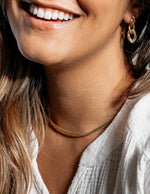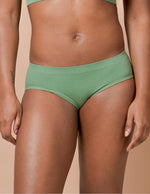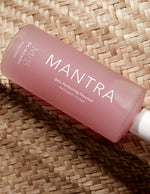
Wine is one of the pleasures of the universe. We linger lovingly over a candlelit glass with supper, we pop a cork to share with friends, and we fall head over heels for the romanticism of a dusty cellar stacked with vintage bottles.
Let's face it: the wine drinker has a long and luscious relationship with this amazingly intricate alcoholic beverage.
Red wines can make us warm and gummy, loose tongued and relaxed. Chilled white wines are a wonder for a sunny day, and Rosé wine reminds us of Provencal afternoons among the lavender in the sweet South of France.
We also know that too much will lead to heavy limbs and a killer hangover...
...and that excessive alcohol consumption can lead to all kinds of problems like bad cholesterol and weight gain, thanks to all those sugary calories.
So how do we get our pleasure without the pain? Is there even a way towards healthy wine? And what health benefit can we get from one glass of the good stuff?
Here, we break down all you need to know about healthy wine consumption and making sip worthy drink choices that could lower the ill effects of everyone's favorite adult grape juice.
Here are a few ideas for raising a glass to your good health…
7 Tips For Staying Healthy When Drinking Wine
1. Choose Red Over White

If you are trying to soak up all the health benefits you can when it comes to wine, then you are best sticking to red.
White wine is glorious, but red wine is really where it's at when it comes to all those beautiful antioxidants that can help your heart beat healthy. Red wine is also better for silicon, which actually improves your bone density.
Ruby and dry red wines are said to be the best, as the grape skins aren't taken out during the whole fermentation process. This means that the skins can be rich in procyanidins, which can help your heart health by lowering the chance of heart disease and keeping blood pressure on the downlow.
2. Dry Out With Pinot Noir

Along with choosing red over white, if you want to find healthy ways to consume wine then you are best going dry over sweet. Pinot Noir hits the top spot as one of the healthiest wines thanks to its resveratrol level and low sugar levels. All this is awesome news for helping to inspire better brain health and to lower levels of insulin sensitivity. Along with its high resveratrol concentration, Pinot Noir can also heighten the level of omega 3 fatty acids which can have a knock-on effect and help improve heart health. Next on the list of decent red wine grape varieties are Merlot and Cabernet Sauvignon for when you want to mix it up a little.
3. Opt For Rosé (If Red Wine Isn't Your Thing)

If red wine gives you a headache just thinking about it, then you can switch to a glass of Rosé now and then. Sure, it has fewer antioxidants in comparison to red but it is still better for you than drinking white in terms of lower sugar content, according to this study by David Friedman.
Rosé is made with both red and white grapes and has resveratrol antioxidant content as well as polyphenol within it. Resveratrol is an antioxidant compound that contains a lower sugar content and fewer calories than your straight up whites. Also, thanks to the rich antioxidant compounds, Rosé wine is known for lowering bad cholesterol.
For those willful white lovers who can't imagine even a tint of red, try and stick to Pinot Grigio. If you want to keep healthy then avoid sweet white wines as they are weighed down with sugars.
4. Don’t Go Cheap

Cheap wine will not only make you feel nasty but it will also make you less mindful about consumption. If you spend just a little bit more on your wine, then it will probably encourage you to savor it over a few days – reducing the likelihood of a blowout binge. Invest in a bottle stopper or vacuum pump so that after cracking your wine you aren’t obliged to polish off the bottle but can stash it safely without compromising the quality.
5. Take the Organic Approach

For those wanting to invest in potential health benefits of wine or even those just looking to embrace moderate drinking habits without putting their health at risk, there is a lot of research that goes into the production of natural wine and organic wine.
For some, it may be a healthier choice to choose grapes that have been naturally grown as they are less likely to have suffered from a chemical impact. Organic wines and dry farm wine tend to have a lower sulfite count than wines made the traditional way.
And for those with sensitivities to sulfites, this can be a game-changer in the wine-drinking experience.
While all wine will have sulfites due to the fermentation process, those grown organically won't have any added extras, which can help those who tend to be sensitive to such things.
6. Pair with Food

Any alcohol on an empty stomach is bound to lead to trouble. Without food to soak up the booze, the alcohol travels straight to your bloodstream leading to faster intoxication and dehydration. Wine was made to be accompanied by fabulous food. Pinot Noir and decadent French cheeses, sauvignon blanc and fresh flaky fish – these are marriages made in heaven.
7. Watch Your Relationship With Drinking

There are a thousand ways we glam-up our relationship with wine– oversized novelty glasses and promises to friends to crack ten bottles after a bad day. But we really need to watch our subconscious pairing of alcohol as a remedy for a bad day or coping strategy for stress as this is when a relationship can go toxic.
Take a look at your relationship to wine; is it used as a sensory pleasure or to combat pain?
Maybe you just need a little bit of self-care to make up for the bad day or an evening for yourself.
Wine is great fun and an even better coping mechanism. When the coping mechanism becomes a way to avoid any bad feelings, however, then it's time to put the bottle down for a few days to let your brain catch up with all of those emotions.
FAQ About Choosing The Healthiest Wine

What is the healthiest type of wine?
As mentioned, a glass of wine like Pinot Noir is said to boost health by lowering bad cholesterol and thanks to its high wine resveratrol levels it has been shown to improve heart function and keep your gut microbe in beautiful balance.
Which type of wine has the least sugar?
Rosé! Rosé has a whole lot less sugar and calories in it when compared to other types of wine. Reds also have less sugar than whites.
Which is healthier red or white wine?
Basically dry red wines and orange wine are healthier for you than white wine when it comes to things like polyphenolic count, LDL cholesterol, and all the good stuff that can be found in the grape skin of red wine.
What is the healthiest white wine to drink?
If you want to up your health count and stick to white wine then the best choice is Pinot Grigio, Riesling, and the Portuguese style Vinho Verde. This is because these styles are lighter in the body and boast fewer calories than the richer varieties of white wine, sparkling wine, and champagne.
What is the healthiest red wine to drink?
The healthiest red wine grapes tend to be Pinot Noir, Malbec grapes and Cabernet Sauvignon.
Is it OK to drink red wine every day?
Good news for college students and anyone who is a lover of grape to glass culture, having a glass a day can help to boost antioxidants, encourage flow to the blood vessels, increase the good cholesterol, and can help your cardiovascular health. Of course, anything with alcohol content can also disrupt sleep patterns and be overused as a stress reliever so everyone needs to weigh up their own pros and cons when deciding if that glass of merlot works for them or not.
Which wine is better for weight loss?
Rose is actually the best choice for weight loss as each glass contains around 80 calories or less.
Does wine cause belly fat?
The way we break down and digest wine is actually quite different from how we digest food. While everyone's favorite joy juice doesn't necessarily 'make you fat' it does contain calories which impact weight and it also can stimulate our hunger choices.
Are you a fan of the tannin? Do you feel the magic of Merlot or do you seek something a little brighter and sweeter? Share your thoughts on red grapes and white grapes and let's get the lowdown on how to sozzle in healthy style.
You might also like:





















 TOP
TOP



